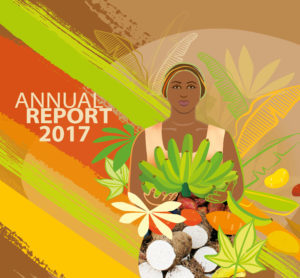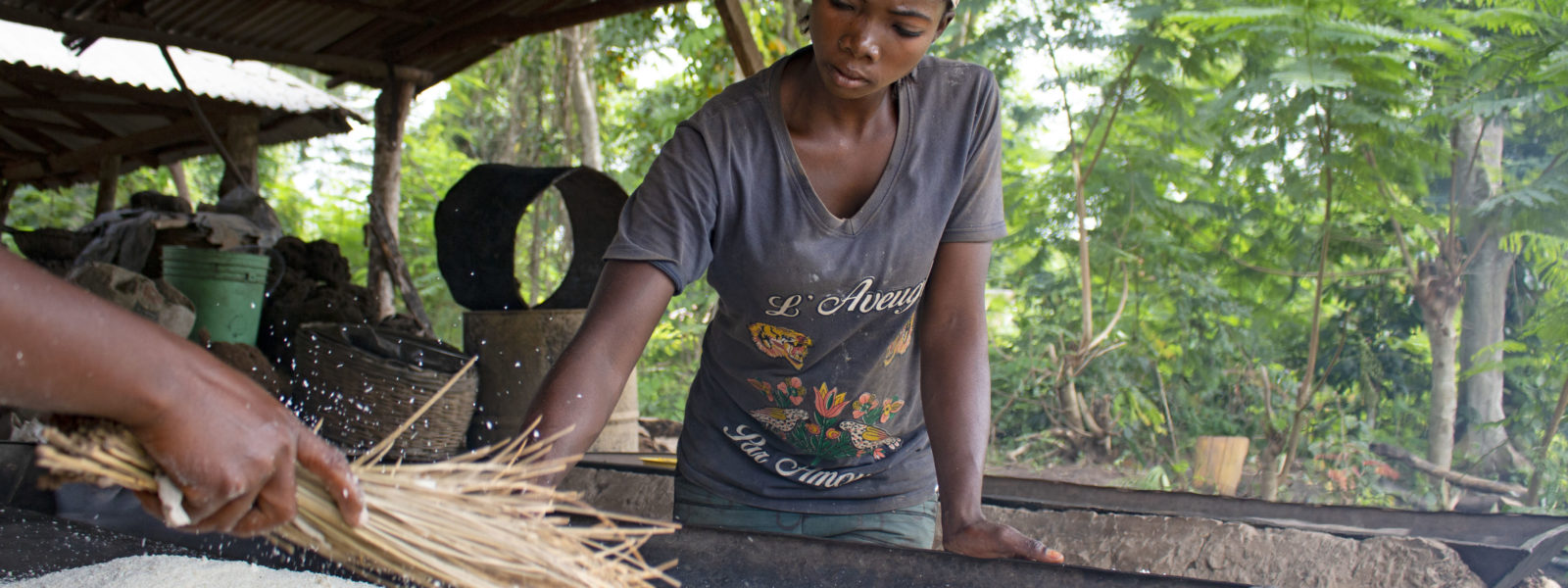Understanding gender differences in trait preferences for cassava can accelerate adoption as this knowledge is incorporated into breeding programs.
Cassava is the daily bread of Nigeria, but it is hardly ever simply boiled and eaten. Nigerian cassava is processed into products like gari (toasted cassava starch granules), which are made in villages and trucked to cities across the country. Processing usually involves several different steps and quite a lot of work. While women do grow cassava, they also provide most of the labor for cassava processing, both for food products to eat at home and in many cases, to make a living from small-scale enterprises. Men grow larger cassava farms than women and prefer to sell cassava as fresh roots, instead of processing it. Because of these varying roles, women and men’s perception of the most critical traits needed in cassava may differ.
The Next Generation Cassava Breeding (NextGen) project aims to take these traits into account to improve targeting of cassava varieties for end users. Nextgen uses a new approach to accelerate breeding called genomic selection that relies on statistical modeling to predict cassava performance before field-testing.
Hale Ann Tufan of Cornell University leads the survey component of Nextgen. She explains, “We need to think like a company. Companies have to build consumer profiles of their users and then develop typologies around these to inform the breeding program.” Likewise, plant breeders need to understand how important a trait is for farmers, as not all the traits that farmers list are equally important.
Similarly, the RTBfoods project led by Dominique Dufour, Food Scientist at CIRAD is also working to understand gender differences in trait preferences for important food and income-generating root and tuber products, with the aim to develop new varieties that meet the needs of men and women producers, processors and consumers. “Creating an evidence base for crop and product preferences by gender and other factors of social difference is a new and innovative approach that we are excited about. Importantly, this will further the contributions of breeders to improving food security and income generation in sub-Saharan Africa,” explains Lora Forsythe of the Natural Resources Institute, who leads Work Package 1 on preferences for the RTBfoods project.
 Continue reading the story in the RTB 2017 Annual Report: From science to scaling.
Continue reading the story in the RTB 2017 Annual Report: From science to scaling.
